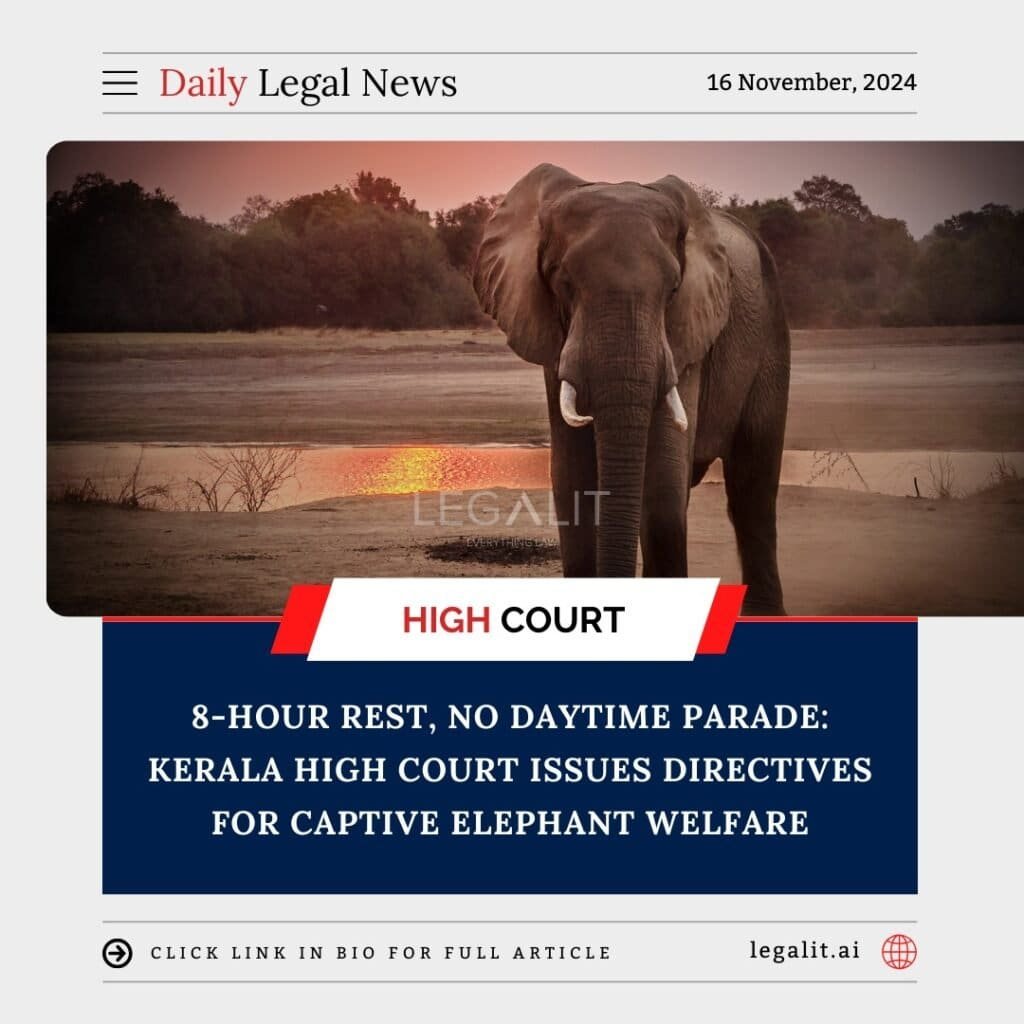
The Kerala High Court has issued a series of directives to ensure the welfare of captive elephants, mandating adequate rest periods, restrictions on parades, and proper care to uphold ethical treatment.
Background:
The case arose from concerns over the inhumane treatment of captive elephants used in festivals and other cultural events across Kerala. Reports highlighted instances of prolonged parades in extreme weather conditions, insufficient rest, and lack of proper care, leading to physical and psychological stress on the animals.
Animal welfare activists and organizations brought the matter to the court’s attention, seeking stricter enforcement of existing guidelines and additional measures for the protection of elephants.
Court’s Rationale:
The High Court emphasized that captive elephants, despite being central to Kerala’s cultural heritage, are living beings entitled to humane treatment. The directives aim to strike a balance between cultural practices and the rights of the animals.
Key observations include:
- Elephants’ Physical Limits: Continuous parades in the heat and lack of rest significantly harm their well-being.
- Legal and Ethical Duties: Authorities and owners must ensure compliance with the Wildlife Protection Act, 1972, and the Prevention of Cruelty to Animals Act, 1960.
- Constitutional Values: The Court highlighted Article 51A(g), which obligates citizens to have compassion for living creatures.
Key Directives Issued:
- Rest Periods: Elephants must be given an uninterrupted rest period of at least 8 hours daily.
- Parade Restrictions: Parades on public roads during the daytime are prohibited to prevent stress and ensure public safety.
- Medical Care: Regular health check-ups and availability of veterinarians during events must be ensured.
- Proper Shade and Water: Organizers and owners are required to provide adequate shelter and hydration during events.
- Monitoring Mechanism: Strict implementation of these directives will be monitored by local authorities and welfare boards.
Existing Legal Framework:
- Wildlife Protection Act, 1972: Prohibits cruelty to animals and outlines the rights and protection for wildlife, including elephants.
- Prevention of Cruelty to Animals Act, 1960: Mandates humane treatment of animals, including working conditions for captive elephants.
Conclusion:
This judgment underscores the judiciary’s commitment to animal welfare, particularly in balancing cultural traditions with humane treatment. The directives aim to protect captive elephants from exploitation while ensuring they continue to be part of Kerala’s cultural identity in a more ethical manner.